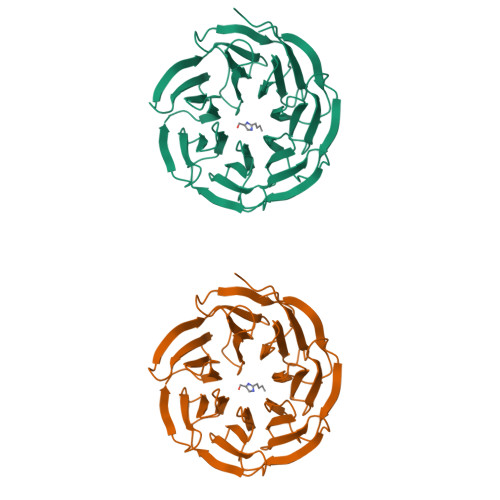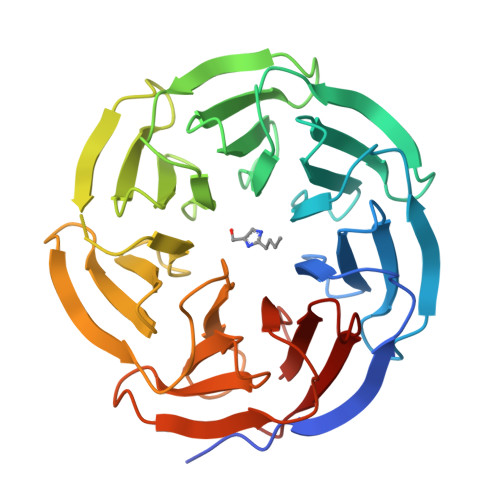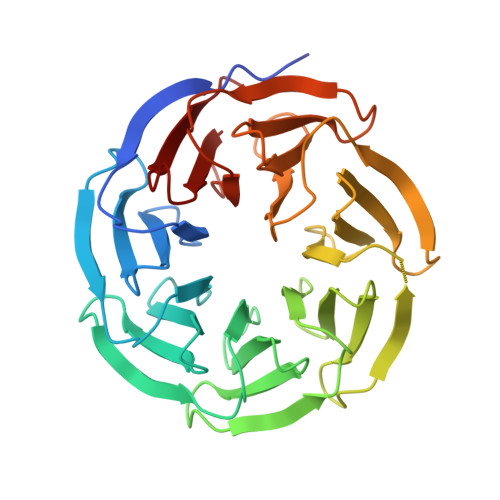Fragment screening for a protein-protein interaction inhibitor to WDR5.
Dennis, M.L., Morrow, B.J., Dolezal, O., Cuzzupe, A.N., Stupple, A.E., Newman, J., Bentley, J., Hattarki, M., Nuttall, S.D., Foitzik, R.C., Street, I.P., Stupple, P.A., Monahan, B.J., Peat, T.S.(2019) Struct Dyn 6: 064701-064701
- PubMed: 31768400
- DOI: https://doi.org/10.1063/1.5122849
- Primary Citation of Related Structures:
6PG3, 6PG4, 6PG5, 6PG6, 6PG7, 6PG8, 6PG9, 6PGA, 6PGB, 6PGC, 6PGD, 6PGE, 6PGF - PubMed Abstract:
The WD40-repeat protein WDR5 scaffolds various epigenetic writers and is a critical component of the mammalian SET/MLL histone methyltransferase complex. Dysregulation of the MLL1 catalytic function is associated with mixed-lineage leukemia, and antagonism of the WDR5-MLL1 interaction by small molecules has been proposed as a therapeutic strategy for MLL-rearranged cancers. Small molecule binders of the "WIN" site of WDR5 that cause displacement from chromatin have been additionally implicated to be of broader use in cancer treatment. In this study, a fragment screen with Surface Plasmon Resonance (SPR) was used to identify a highly ligand-efficient imidazole-containing compound that is bound in the WIN site. The subsequent medicinal chemistry campaign-guided by a suite of high-resolution cocrystal structures with WDR5-progressed the initial hit to a low micromolar binder. One outcome from this study is a moiety that substitutes well for the side chain of arginine; a tripeptide containing one such substitution was resolved in a high resolution structure (1.5 Å) with a binding mode analogous to the native tripeptide. SPR furthermore indicates a similar residence time ( k d = ∼0.06 s -1 ) for these two analogs. This novel scaffold therefore represents a possible means to overcome the potential permeability issues of WDR5 ligands that possess highly basic groups like guanidine. The series reported here furthers the understanding of the WDR5 WIN site and functions as a starting point for the development of more potent WDR5 inhibitors that may serve as cancer therapeutics.
Organizational Affiliation:
Commonwealth Scientific and Industrial Research Organisation (CSIRO), Biomedical Program, Parkville, Victoria 3052, Australia.




















